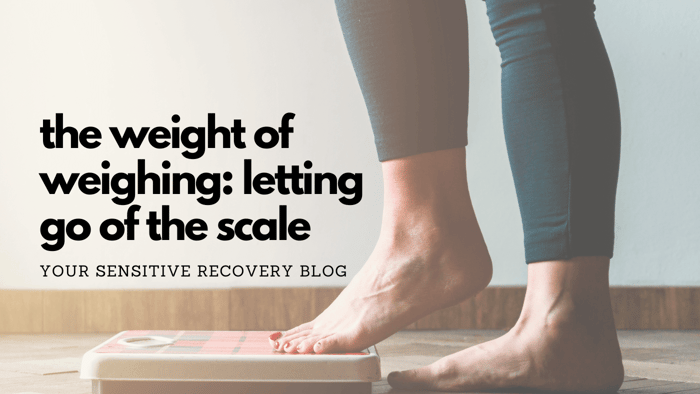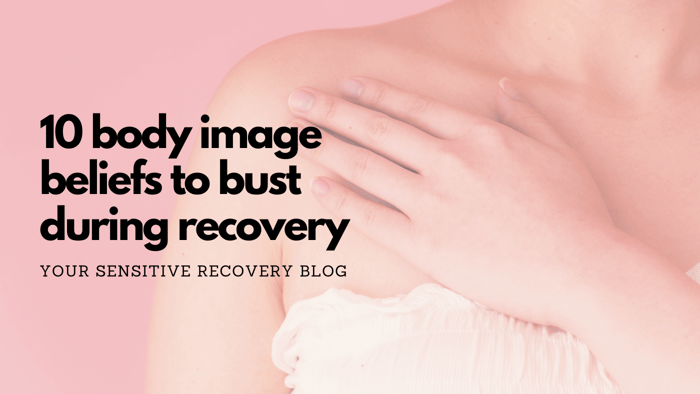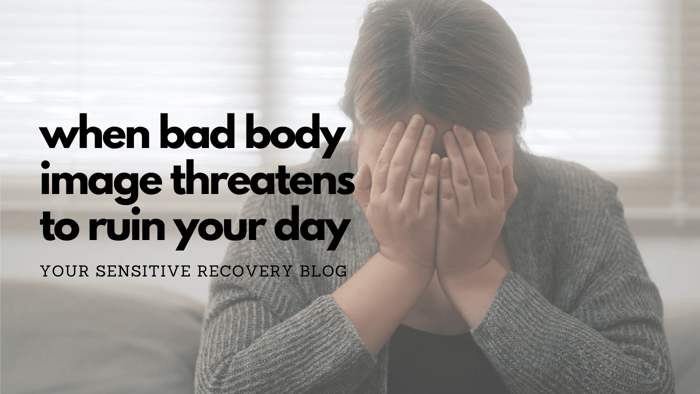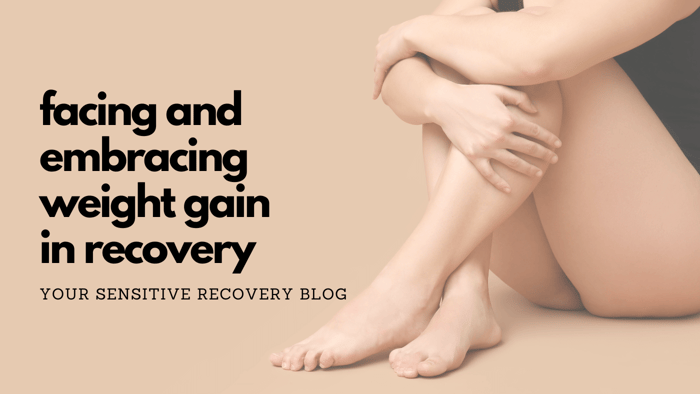For longer than I care to admit, my weight was one of the most important things in my life. It still feels icky to say that, even almost two decades later, but it's true. I was obsessed with what I ate and what I weighed, and therefore, with the scale. That little appliance had the power to make or break my day, lift or wreck my mood, and determine what I did with my time. I was addicted to weighing myself.
If you've ever owned a scale, chances are, you have a bit of a love-hate relationship with it. Maybe it's collecting dust in the corner of your bathroom, yet you don't dare throw it out. Maybe you step on it occasionally for reassurance that you're "ok." Or maybe, like I once did, you step on it multiple times a day with near-religious devotion.
Whatever you believe it's doing for you, is it actually helping? Does it make your life better? Or are you a prisoner to a number that never delivers on its promises?
This post is all about why weighing yourself is often harmful and how you can break free.
The Illusion of Control
As a child, I never thought about my weight. I unknowingly benefited from thin privilege. My parents had a scale in their bathroom, but I barely noticed it...until it did.
Home from college one day, I spotted the scale and wondered, "Did I gain that 'freshman fifteen' people talk about?" I didn't really know what I weighed before school, but the number I ended up seeing still didn’t sit well with me. I have cultural programming to thank for that.
From then on, weighing myself became routine. Every trip home or to the gym was an opportunity to check whether I was “on track.”But access to a scale, a sensitive and high-achieving temperament, and a few difficult life experiences created the perfect storm. What I was actually "on track" for was an eating disorder.
Why did I keep weighing myself?
- "I'm just curious."
- "I need to keep myself in check."
- "I have to know my weight to make sure I'm healthy."
- "I don't want to be afraid of the number."
Eventually, these were no longer reasons. They were excuses. The real reason? I was addicted.
The Real Cost of Weighing
At a glance, stepping on the scale seems harmless - just a number, just data. But for many people, especially for those prone to disordered eating, those few seconds can come at a high cost. Weighing yourself can quickly become a harmful ritual loaded with meaning.
Besides dictating your mood and altering your food choices for the day, that number may even start to determine whether you are “allowed” to rest, eat, or enjoy yourself. You may tell yourself you're just curious, but if seeing the number sends you into a spiral of self-criticism or anxiety, the cost is already too high.
For Highly Sensitive People, the impact is often amplified. We process deeply, feel intensely, and can become overwhelmed more quickly.
A small fluctuation on the scale can feel like a loud alarm bell, even when nothing is actually wrong.Many clients I work with end up in a choose-your-adventure from hell:
Take your weight → Happy? → Double down on disordered eating behaviors to stay happy.
Take your weight → Unhappy? → Double down to perhaps feel happy tomorrow.
Either way, you're stuck. The truth is, weighing yourself isn’t neutral if you don’t feel neutral afterward. Letting a number override your internal cues reinforces the belief that something outside of you knows better than your body.
That’s not neutrality. That’s control masquerading as care.
What Happens When You Stop Weighing Yourself
At first, it’s disorienting to let go of a number that once defined your day. I even thought about my weight more for a while. But when I stayed with the discomfort and didn’t let it alter my eating or movement, it started to fade.
Freedom follows the discomfort.
Instead of a hyper-focus on the scale, there’s room to gently tune in to facets of health and wellbeing that I all but ignored when I was weighing myself. Now I listen for (and can hear) my bodies cues for food, fullness, variety, movement, rest, community, play, and more.
Yes, the weight our bodies want to naturally settle at does shift with time. I won’t lie about that. As is true for most people, my “set point” now, in midlife, is higher than it was in my 20s. I could guess at the reasons, but honestly? My body’s reasons are her own. And that’s okay. You do you, body.
The Top 3 Tips for Breaking Free From the Scale
If you want to stop weighing yourself, or at least decrease the hold the scale has over you, here are some things that helped me break free:
Replace the weighing ritual. Track how you feel instead of how much you weigh. Create a routine of checking in with yourself. Note your mood, any emotions swimming around, physical sensations, and your current state of mind. This is a way better indicator of "how you're doing" than a number.
When you want to weigh, write. Journal about the urges you have to check your weight. Are they prompted by a habit? Anxiety? A rough day? What are you really looking for in that moment?
Move the damn thing out of sight (or get rid of it all together). I gave my therapist my scale multiple times during my eating disorder recovery. She always promised to return them if I really wanted, but after our talks, I usually agreed to leave them with her for another week. And then another.
You don’t have to be ready to let the scale go completely. It’s okay to feel fear or resistance. Be gentle with yourself.
You don’t need a number to tell you how to feel in your body, how much care you deserve, or whether you're doing ok. Often, the healthiest choice is stepping away from the scale and stepping into your life.
✨ Josie Munroe, LMFT is a licensed therapist and owner of JosieMunroe.com and Your Sensitive Recovery. As a recovered clinician and Highly Sensitive Person, she loves supporting others on their journeys to form new, empowered relationships with food, their bodies, and their sensitivity. Join the newsletter for a weekly boost of hope and inspiration. You deserve a recovery that works for you! ✨





